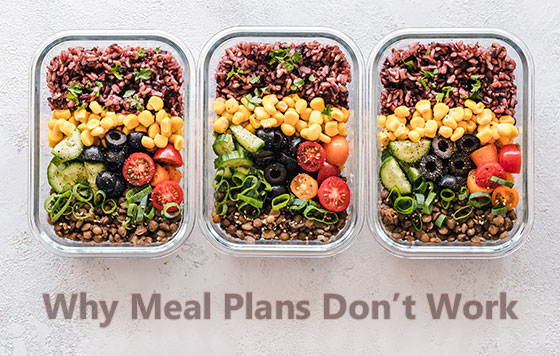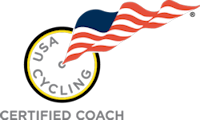
Unless you are blessed with genetics that let you eat fast food and drink soda for every meal and still look and feel great, nutrition will play a vital role in your success in endurance sports. But you have to choose the right nutrition plan to fit your needs.
I would say that Precision Nutrition and The Paleo Diet are the two hottest diet and nutrition plans in sports today. Precision Nutrition is widely known in strength training, MMA, and some other sports, while the Paleo Diet is all but a contractual obligation for anyone doing Crossfit.
The question is, what is the best choice for the endurance athlete?
In this article, I will compare both diets from this perspective and give you my opinion…
Table of Contents
Precision Nutrition Pros and Cons
Precision Nutrition is a full-out eating system meant for everyone, but especially athletes. It was created by Dr. John Berardi, a former competitive bodybuilder. He knows his stuff and looks the part.
He refers to PN as a complete system for body transformation through nutrition. PN starts by covering everything you need to know about nutrition, then follows that with teaching you how to develop a custom nutrition plan unique to your physiology.
If you want to see proof that it works, just check out the before and after pictures from Precision Nutrition’s “Lean Eating” and “Scrawny to Brawny” coaching clients. It’s mind-blowing the body transformations I’ve been seeing year after year (I’m on the PN email list).
I should point out, Precision Nutrition does have endurance athlete support. Chandra Crawford, 2006 Olympic Gold Medalist in XC skiing, and Eddie Hilger, US Masters National Champion cyclist, both provided their testimonials (and you can read their full stories at precisionnutrition.com).
Precision Nutrition Pros:
Precision Nutrition is not restricting – it allows you to eat all types of foods. Your suggested food choices will vary depending on your current condition and your goals, and certain foods are only allowed at certain times of the day, but overall, PN doesn’t throw out entire groups of foods.
I really like that method, because it allows you some leeway in your own choices. PN is very customizable. It doesn’t matter what your body type is, what your preferred sports are, or if you’re a vegetarian – Precision Nutrition is still going to work for you.
But at the same time, it doesn’t matter if you don’t have any sort of food ideas or preferences. The course contains tons of recipes, everything from Super Shakes (i.e. smoothies) to Pecan-Crusted Seared Salmon. Surely something in there will inspire you.
What could be better? If Precision Nutrition gave you an entire cookbook! Well, they do! It is called Gourmet Nutrition and it comes free in the PN package. It is packed with about 200 recipes over as many pages. I’m a very picky eater and I still found plenty of meals I’d eat! Full pictures and instructions are included.
Worried that it is too complicated? Don’t be. The PN course guides you step-by-step like if you hired a nutritionist. The whole point is that you follow along and make their guidelines into a personalized plan for yourself.
It’s pretty simple – pick out the foods you want and then put them in your calendar, based on what you want to eat each day. Then just track your results (just like you would with your training plan) and adapt the program as necessary. (Yes, they give you advice for that, too.)
Precision Nutrition Cons:
There are going to be two barriers for anyone to get started on Precision Nutrition.
First, it costs $97. If you compare that to a normal diet book that costs about $9.32, PN is going to seem way too expensive.
Second, the huge binder can be intimidating. PN is easy to follow, but there is a lot to it. You can’t just memorize it in one afternoon and then be set to go. You have to put in the time to get the results.
Paleo Diet Pros and Cons
The Paleolithic diet is a modern diet, but it focuses on the diet of our ancestors, back in the Paleolithic era, before agriculture changed everything. It is part diet, part lifestyle.
Centered on commonly available modern foods, the “contemporary” Paleolithic diet consists mainly of fish, grass-fed pasture raised meats, vegetables, fruit, roots, and nuts, and excludes grains, legumes, dairy products, salt, refined sugar, and processed oils.
You most likely know this Paleolithic diet as The Paleo Diet, the book by Dr. Loren Cordain. Or perhaps The Paleo Solution by Robb Wolf. Or even The Primal Blueprint by Mark Sisson.
For purposes of this comparison, I’ll generalize everything under the “paleolithic diet” umbrella.
Paleo Diet Pros:
My #1 diet philosophy has always been to eat natural foods, and the Paleo diet works great with this. It is based on healthy, natural, unrefined and unprocessed foods. This is a very simple change anyone can make to their diet, and it provides almost instant results. Seriously, switch from processed foods to natural foods, and you’ll probably feel better that same day!
Also, a Paleo approach can provide quick weight loss. I believe this is mainly due to the “low carb” aspect of the diet, but it could also be due to the lower caloric intake that usually occurs when you start eating more nutritionally-dense foods. Either way, many people (although not every single person) see quick, sometimes dramatic, results.
Believe it or not, some of these people are endurance athletes. Yep, some pro endurance athletes eat a Paleo diet. Take Jacob Fisher (pro triathlete), Jonas Colting (Ultraman World Champion), and Allison Mann (pro mountain biker), for example. Most of these athletes blog about their diet if you want to see more from them.
Finally, if you want to get started on your own Paleo diet, the books are inexpensive. The books are around $9 and $15 at Amazon.com.
Paleo Diet Cons:
The Paleo diet isn’t perfect. It doesn’t work for everyone. The problem I see is that everyone is different, and using the same diet simply doesn’t work for everyone. For every pro triathlete that eats Paleo, I bet there are many who tried it and didn’t like it.
It’s too restricting – entire food groups are totally disallowed. All dairy, grains, and legumes (beans, peas and lentils) are forbidden. Fruit is sometimes frowned upon. I perform better without wheat or dairy, but I do like my oatmeal and legumes. Some people might be the opposite. Don’t restrict yourself blindly.
Did you notice most carbohydrate sources are disallowed? Well, “low carb” is not part of a cyclist’s vocabulary! I refuse to believe that a low-carb diet is the best choice for all endurance athletes.
Also considering food options, certain foods can be really expensive. If you can get high-quality meat, eggs, fresh fruits, and vegetables from a local farm, great. But if you go to a store like Whole Foods or a farmer’s market in the city, you might be spending your entire paycheck!
Last but not least, the whole “Paleo” idea is trendy right now. If something works, I don’t care if it’s trendy or a fad – but it can get annoying sometimes! Some people treat this diet like their religion. You say one thing about Paleo not being the best idea in the history of the world and you might be attacked as an anti-Paleo bigot!
My Recommendation: Precision Nutrition
While I actually like the Paleo Diet a lot, and we have The Paleo Diet for Athletes book created just for us, I have to give the nod to Precision Nutrition.
The Paleo Diet is kind of a one size fits all diet book for living a long, healthy life. It’s great for what it is, but when we’re talking individual sports performance, nothing beats Precision Nutrition. It goes into detail about what to eat and when, and it is based on the premise that different people will eat differently.
Add up the cost of the cookbooks and PN isn’t so much more expensive anymore.
To find out how Precision Nutrition can change your life and improve your performance, check out PrecisionNutrition.com.
Show References
Levi Bloom is an experienced endurance athlete who has been training and competing for over 17 years. A former Cat 1 road and mountain bike racer (professional class on the regional circuit), he is now a cycling coach (USA Cycling Level 3 Certified) and sports nutrition coach (Precision Nutrition Level 1 Certified).









Great article, Levi! Dr. Berardi was my instructor as ISSA (International Sports Sciences Association) a few years ago for my Fitness Nutrition certification. I believe in him. I have a thyroid condition (hypothyroidism) that made me gain a few pounds over the last couple of years. Even as a certified professional, I still sought Precision Nutrition’s help this year through their Lean Eating program. It may seem like a hefty price per month ($99), but I look at it this way –> What trainer or dietician can you pay for less in two hours? Precision Nutrition’s diet is all natural as well but like you said, they do not eliminate food groups like Paleo. I think Paleo is a great concept in that it moves folks to a more natural and healthier diet. But, I’ve seen colleagues on Paleo who are Crossfit trainers that have not made much transformations in their body no matter how much they exercise. What Paleo doesn’t teach is the proper amount of macronutrients for each meal. Many believe that its high dietary and saturated fats from meats is what is good for them. Though saturated fats are not the enemy as once made out to be, all fats must still be in balance when it comes to diet. Omega-3 fats are especially important. Precision Nutrition teaches balance as well as nutrient-timing, and that is why I agree with you in going with them. 🙂
@Abby
Thanks for sharing your experience and observations!
I’m very interested in trying Precision Nutrition, but i’m loathe to get sucked into yet another “eat 6 or more small meals a day” plan, where I have to plan my life around small bowels of tupperware. Is PN any different in this respect?
@Stretch
Although that is one of the suggested habits in Precision Nutrition, it’s totally *not* a requirement.
You might enjoy this article that covers this in greater detail: https://coachlevi.com/nutrition/can-precision-nutrition-paleo-diet-work-together/
@Stretch
I like to refer to PN as a nutrition system because it’s not about any stupid diet stuff like that. You could still follow PN eating 6 meals a day, or 3, or 1, whatever works for you.
PN will emphasize eating multiple meals per day, but that’s for the people who either forget to eat enough or they go too long without eating, leaving them too hungry to think straight, and end up pigging out on junk food. For those people it makes sense to get used to eating on a more frequent basis.
My dietician introduced me to PN and it’s been revolutionary. She says rarely is nutrition just about the food. Habits take longer to change but in the long run, it’s what will stay with you regardless of what life throws. I’m in for the long haul and I’m thankful for this program. Planning to share with a friend of mine.